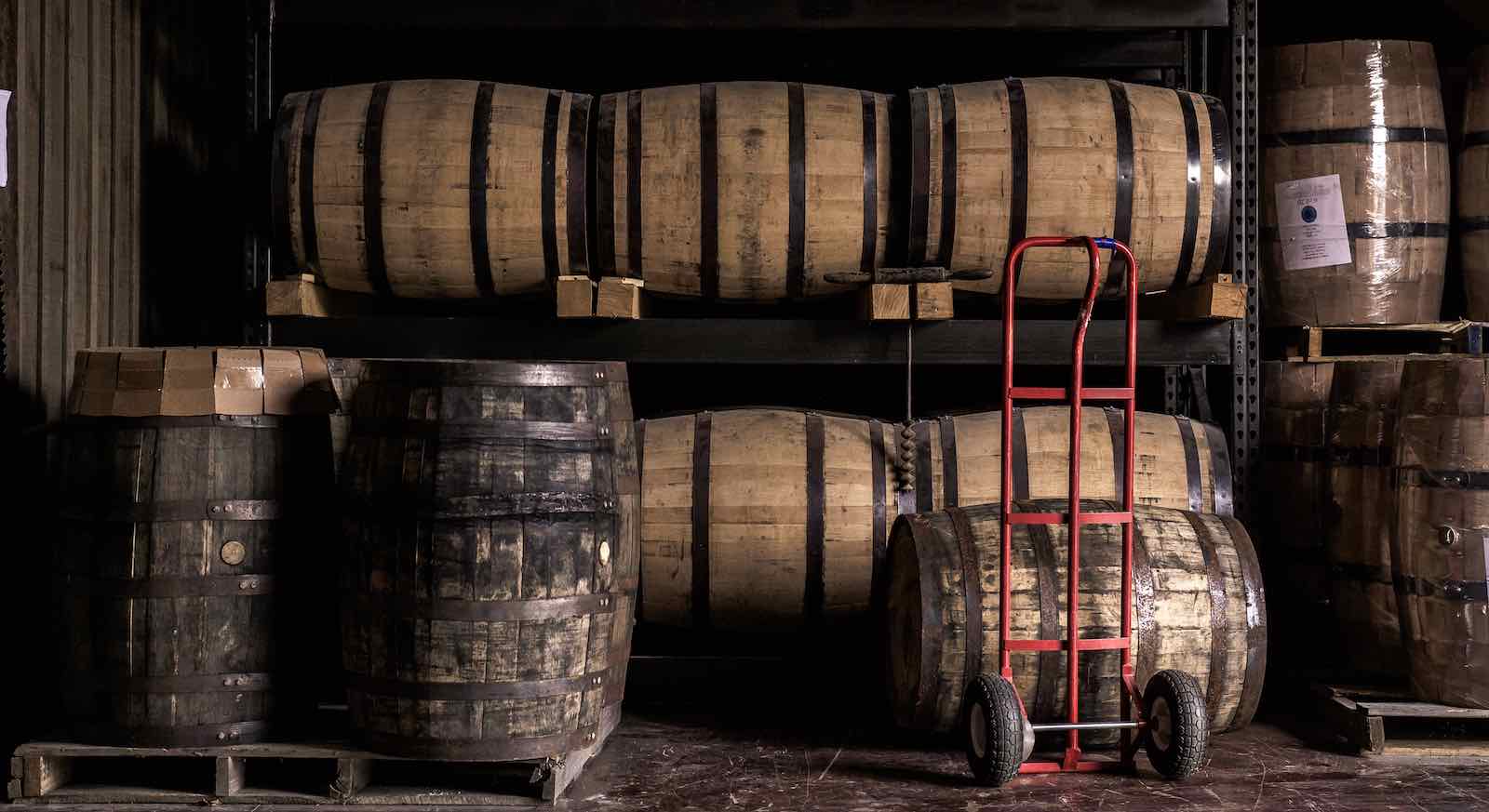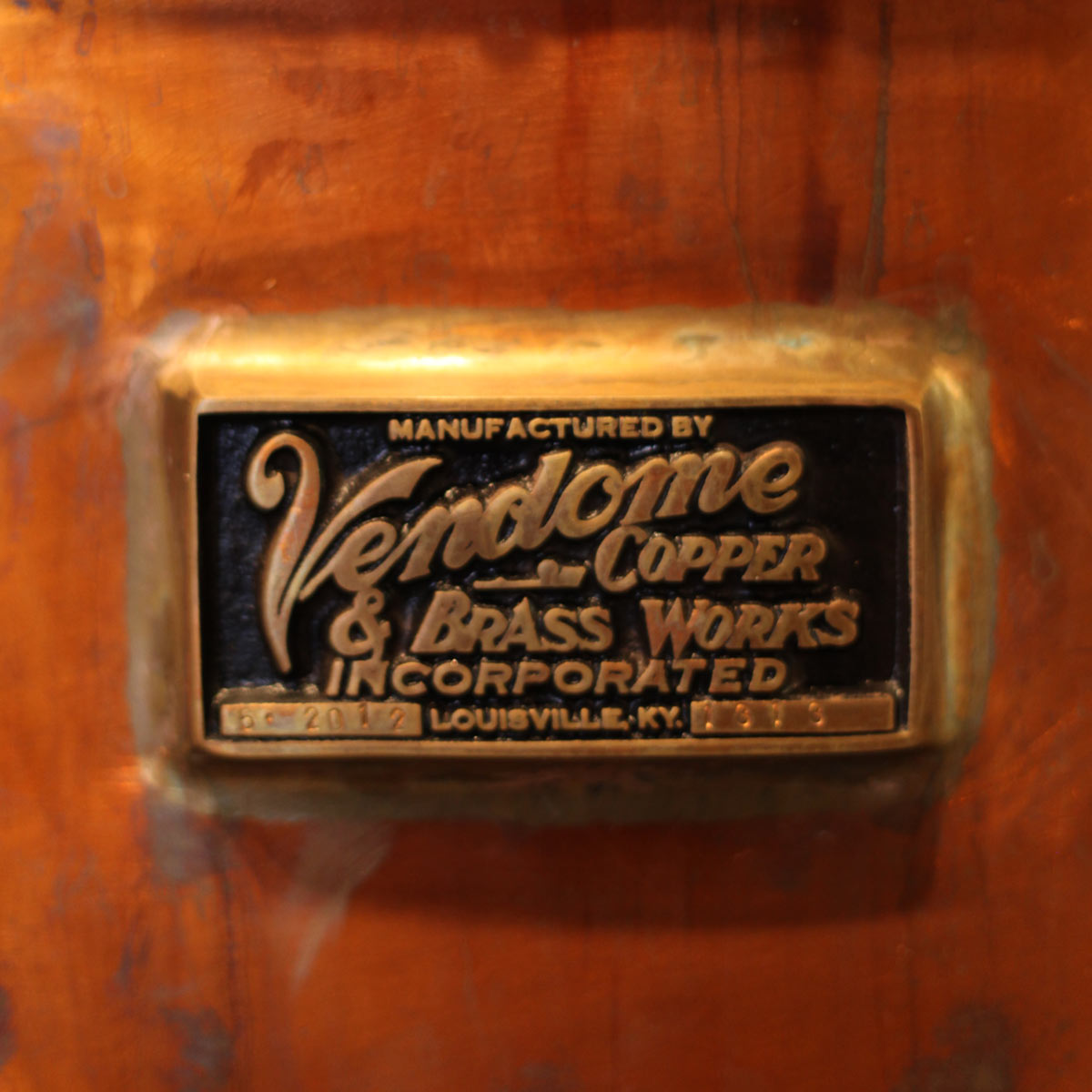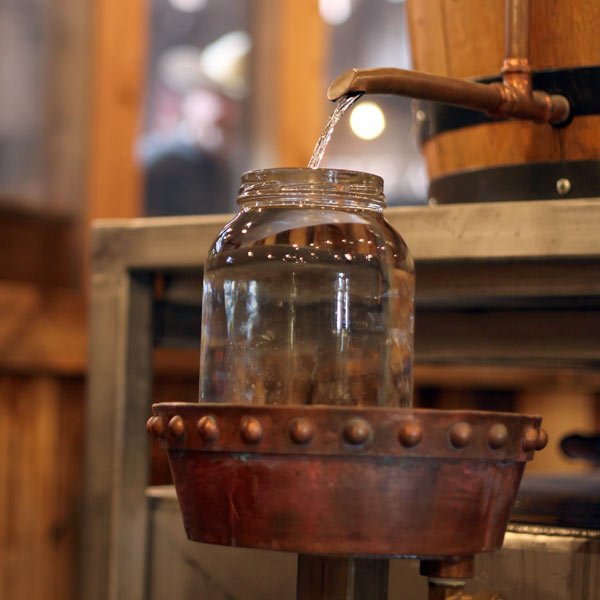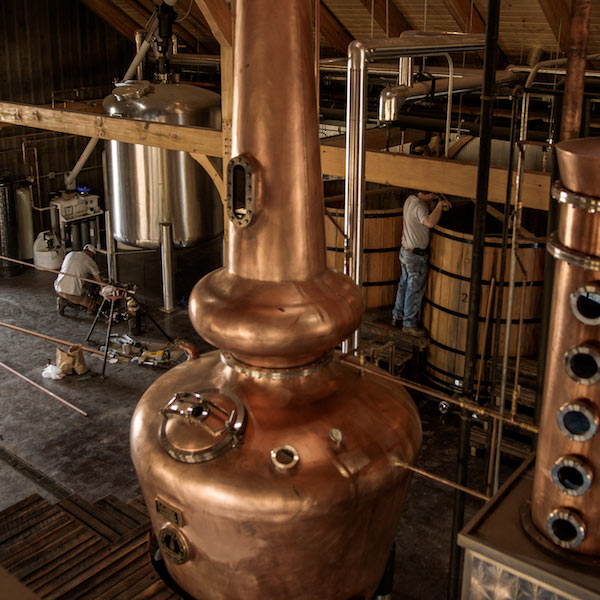The law defines TN whiskey as: a spirit manufactured in TN; filtered through maple charcoal prior to aging, also know as the Lincoln County Process; made from grain that consists of at least 51% corn; distilled to no more than 160 proof (80% abv); aged in new charred oak barrels; placed in the barrel at no more than 125 proof (62.5% abv); and, bottled at not less than 80 proof (40% abv).
All forms of alcoholic beverages – beer, wine, and spirits – are based on fermentation. Fermentation is the natural process where yeast consumes sugar, leaving alcohol as a result. With beer and wine, fermentation is the end of the alcohol production process. Spirit production involves the extra step of distillation, which involves heating up beer, wine or sugar-based wash in order to concentrate the alcohol through evaporation. Distilled spirits can be classified into two broad categories: brown spirits and white spirits. Brown spirits are spirits aged in wood barrels, and include aged whiskies such as Tennessee Whiskey, bourbon, aged rums, and reposado tequila. White spirits are un-aged spirits and include vodka, gin, moonshine, and un-aged rum or tequila.
Whiskey, including Tennessee Whiskey, is any distilled spirit made from a fermented mash made of grain. Brandy, for example, is a distilled spirit made from fermented mash made of fruit, such as grapes or apples, and as such, is not whiskey. The four primary steps to make whiskey are mashing, fermenting, distilling, and aging. Each distiller uses grain combinations chosen by that distillers to produce a specific type of whiskey. Tennessee Whiskey, for example must be at least 51% corn. Other common grains in Tennessee Whiskey are barley, rye, and/or wheat.
Those grains are ground into a fine meal, mixed with water, and cooked until the starches in the grain have been converted into sugars. This process creates a mash that is mixed with yeast, which then converts the sugars into alcohol. The fermented mash, also known as beer, is then pumped into a still and heated up, where evaporation and steam condensation allows the alcohol to separate from the water and grain byproducts.
Whiskey, like all spirits, is colorless when it comes off the still. The distilled spirit must be aged in an oak container to become whiskey. Tennessee Whiskey goes a step farther and requires that the spirits be first filtered through sugar maple charcoal and then aged in new, charred, white oak barrels to become Tennessee Whiskey. The aging process refines the whiskey and gives it all of its color. Once the whiskey is properly aged and bottled, the next – and final – step is to just sip and enjoy!








